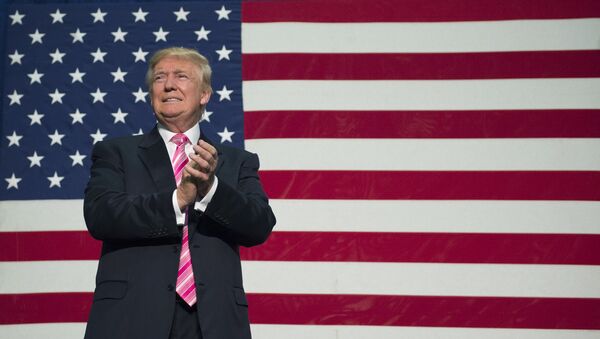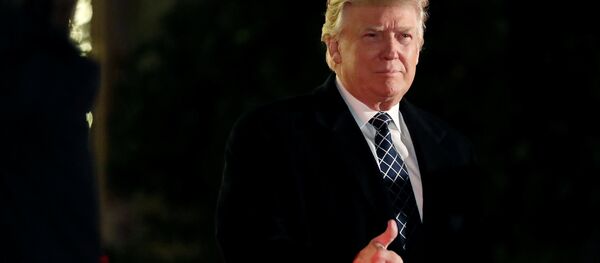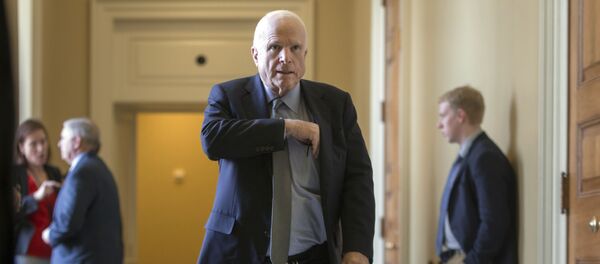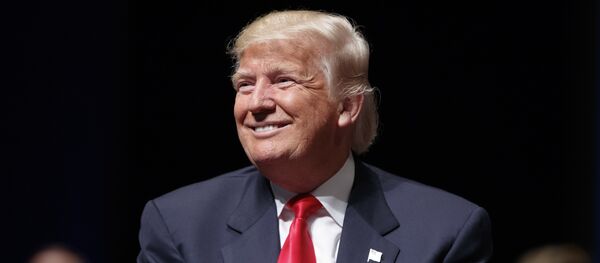According to the experts, the first most visible trend is the emergence of conservative forces during the ongoing change in the US' and EU's political landscape. Their major opponents — the neo-liberal elites — are losing their influence steadily.
Oleg Barabanov, Head of the Department of EU Politics at the European Studies Institute at Moscow State Institute of International Relations (MGIMO) believes that Trump's election might create a powerful domino effect in Europe resulting in the victory of right-wing political parties.
According to Barabanov, France's 2017 presidential election may radically change the policy of the EU if Republican nominee Francois Fillon or the National Front's leader Marine Le Pen comes out on top. In the event of the Right's win the Franco-German alliance led by Angela Merkel and Francois Hollande could be significantly weakened.
"France will be ready to take on the role of a critic of Germany's policy in the EU," Barabanov suggested adding that it may also influence the upcoming elections in Germany, reducing the chance of Merkel's CDU (Christian Democratic Union) party to win.
"Its goal is to hijack the rebellion and meet the public's request," Lukyanov told RIA Novosti.
The experts underscored that Brexit will further deepen the rift within the European Union. The refugee crisis, Britain's withdrawal from the bloc and economic stagnation will continue to shatter the pillars of the EU's unity in 2017.
The second trend is the potential shift in the US' Middle Eastern foreign policy.
According to Dmitry Suslov, Senior lecturer at the Faculty of World Economy and International Affairs of the National Research University Higher School of Economics (NRU-HSE), it is likely that the Trump administration will end the US' policy of regime change in Syria and other countries and focus on the fight against terrorism.
"Here Russian and American approaches will completely overlap, making the [potential] cooperation more fruitful; however, Trump's tough approach toward radical Islamism will aggravate US-Saudi tensions, and it is still not clear what the US administration's reaction to this development will be," Suslov emphasized.
Still, Lukyanov assumes that the US' potential foreign policy shift won't bring an end to the Syrian turmoil. Although Washington and its allies failed to oust Syrian President Bashar al-Assad, the Syrian conflict is far from being resolved, the expert pointed out.
According to Lukyanov, one may expect closer coordination between Moscow and Washington in Syria in fighting terrorists on the ground. However, the distrust between the Pentagon and the Russian military shouldn't be underestimated, the expert warned.

The third trend highlighted by the Valdai Club experts is the de-ideologization of the US' foreign strategy.
According to Suslov, the Trump administration is likely to adopt a "pragmatic" foreign policy. However, Washington's "pragmatism" won't prevent the United States from potential conflicts with Iran and China, he noted.
"Washington's general hostility towards Iran is most likely to grow with full support from the entire Republican establishment and Israel," Suslov wrote in his December op-ed for ValdaiClub.com.
Suslov believes that Trump is going to subject China to what the Reagan administration subjected the USSR in the 1980s: it could increase political, economic and military pressure on China in order to force Beijing into making concessions.
"However, the problem is that the current Chinese leadership exists in a completely different paradigm than the Soviet nomenclature of the 1980s… Most probably, China's answer will be reserved but tough, leading to an aggravation of the general confrontation and geopolitical split in the region," Suslov noted in his December op-ed.
Lukyanov echoed Suslov. He drew attention to the fact that before the inauguration the US President-elect threw the "One China" principle into question. Trump's move indicates that the next US administration will reconsider the US-Chinese relationship.
On the other hand, Trump will try to drive a wedge between Moscow and Beijing, Lukyanov envisions.
"Trump reasonably believes that the Obama administration pursued completely insane politics by exerting pressure on both China and Russia, thus driving them together. It is clear that Trump wants to increase pressure on China and to ease the pressure on Russia — solely in order to make Russia… its ally to contain China. Undoubtedly this is impossible," Lukyanov underscored, adding however, that these efforts will create a "new political context" which will have a serious impact on global affairs.





